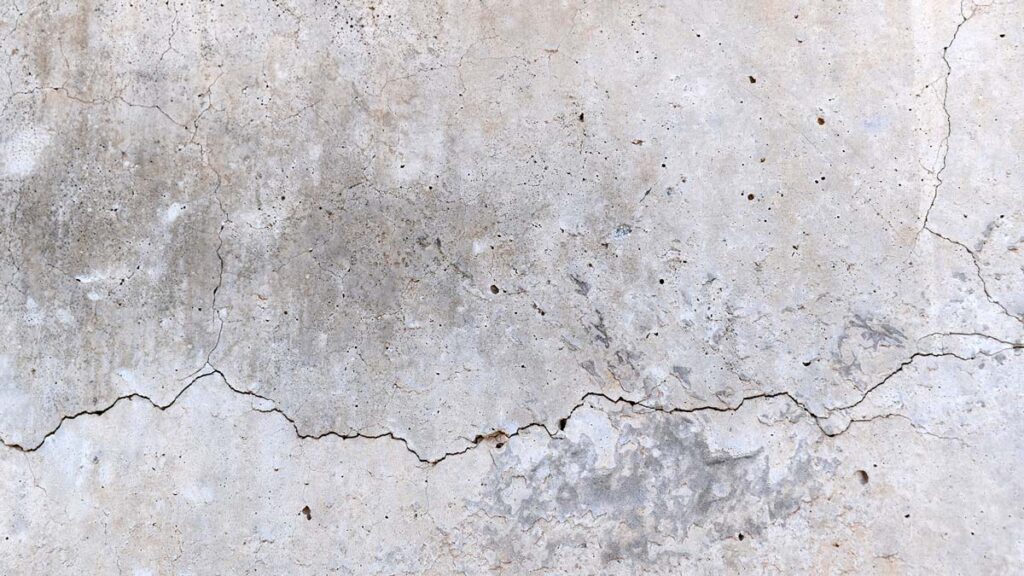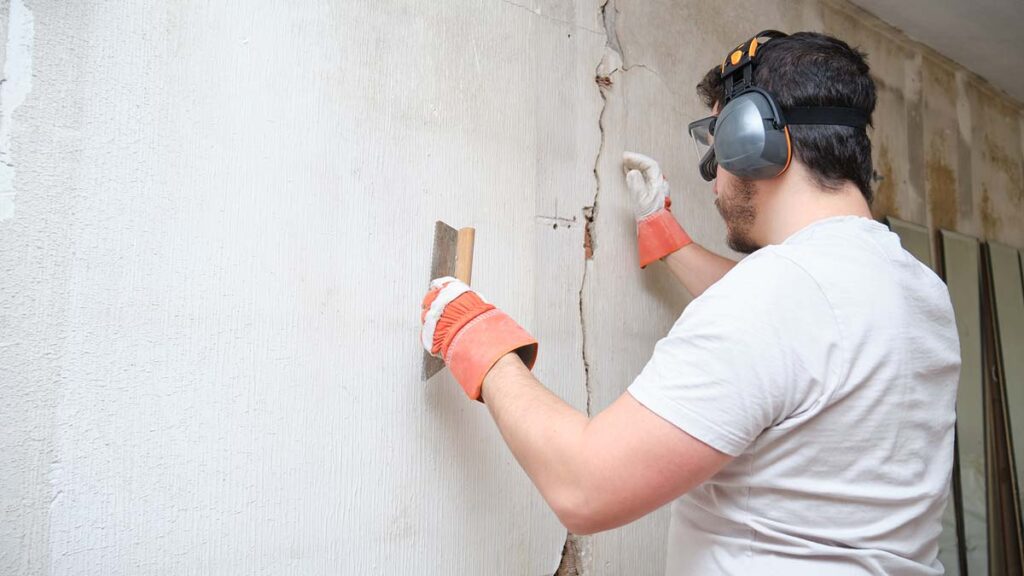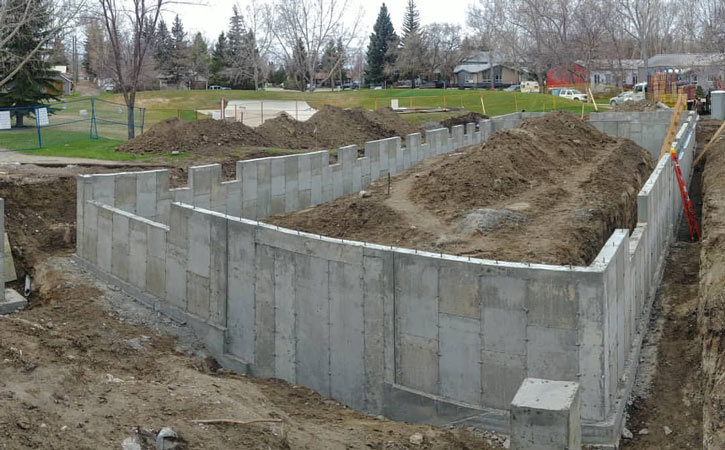When it comes to the structural integrity of your home, the foundation plays a crucial role. A strong and stable foundation is essential for ensuring the overall safety and longevity of any building. However, foundation cracks can pose a serious threat to the stability of your home. In this article, we will explore the causes, types, and effective solutions for foundation cracks.
Table of Contents
- Understanding Foundation Cracks
- Causes of Foundation Cracks
- Types of Foundation Cracks
- Identifying Foundation Cracks
- Effects of Foundation Cracks
- Importance of Prompt Repair
- Professional Foundation Crack Repair
- DIY Foundation Crack Repair
- Prevention and Maintenance Tips
- Common Myths about Foundation Cracks
- Hiring a Foundation Specialist
- Signs of Foundation Problems
- Foundation Crack FAQ
- Conclusion
1. Understanding Foundation Cracks

The foundation of a house is responsible for transferring the weight of the structure to the underlying soil or rock. Over time, various factors can cause the foundation to develop cracks, compromising its stability. It is essential to understand the causes and types of foundation cracks to address them effectively.
2. Causes of Foundation Cracks
Foundation cracks can occur due to several reasons. Some common causes include:
- Soil movement: Expansive soils, such as clay, can expand or contract with changes in moisture levels, leading to foundation movement and cracks.
- Poor construction: Inadequate compaction of soil during construction or the use of substandard materials can weaken the foundation and contribute to cracks.
- Hydrostatic pressure: Excessive water buildup around the foundation can exert pressure on the walls, causing them to crack.
- Natural disasters: Earthquakes, floods, and severe storms can exert tremendous force on the foundation, resulting in cracks.
- Tree roots: Large trees planted too close to the house can cause foundation cracks as their roots grow and expand.
3. Types of Foundation Cracks
Foundation cracks can vary in size, shape, and severity. Some common types of foundation cracks include:
H1: Vertical Cracks
Vertical cracks run straight up and down or slightly diagonal. They are typically caused by settling or natural shifting of the foundation and are relatively common.
H2: Horizontal Cracks
Horizontal cracks are a cause for concern as they indicate significant pressure against the foundation walls. They are often caused by hydrostatic pressure or severe soil movement.
H3: Stair-Step Cracks
Stair-step cracks resemble a flight of stairs and occur when the foundation settles unevenly. These cracks can indicate serious structural issues and require immediate attention.
H4: Diagonal Cracks
Diagonal cracks can occur at a 45-degree angle and are usually caused by the pressure of soil or hydrostatic pressure against the foundation walls.
4. Identifying Foundation Cracks
To identify foundation cracks, it is important to conduct regular inspections. Look for visible cracks on the walls, floors, or exterior of your home. Keep an eye out for any signs of uneven settlement, sticking doors or windows, or gaps around doors and windows.
5. Effects of Foundation Cracks
Foundation cracks can lead to a range of problems, including:
- Water leakage and basement flooding
- Structural instability and compromised safety
- Uneven floors and walls
- Damaged plumbing and electrical systems
- Decreased property value
6. Importance of Prompt Repair
Depending on the type of crack listed above, prompt repair of foundation cracks may be crucial to prevent further damage and costly repairs. Ignoring foundation cracks can lead to more extensive structural issues, requiring invasive and expensive solutions.
7. Professional Foundation Crack Repair
For significant or complex foundation cracks, it is recommended to hire a professional foundation repair specialist. They have the expertise, tools, and experience to assess the extent of the damage and provide effective repair solutions.
8. DIY Foundation Crack Repair

Minor foundation cracks can sometimes be repaired by homeowners. However, it is important to understand the limitations and potential risks associated with DIY repairs. Always follow manufacturer instructions and consult a professional if unsure.
9. Prevention and Maintenance Tips
Taking preventive measures and following proper maintenance practices can help minimize the risk of foundation cracks. Here are some tips:
- Maintain proper drainage around your home
- Control moisture levels in the soil
- Avoid planting large trees near the foundation
- Regularly inspect and maintain your plumbing system
10. Common Myths about Foundation Cracks
There are several myths surrounding foundation cracks. Let’s debunk some of the common misconceptions and provide accurate information to homeowners.
11. Hiring a Foundation Specialist

When faced with foundation problems, it is essential to hire a reputable foundation specialist. Consider their experience, certifications, and customer reviews before making a decision. A professional assessment can help determine the appropriate course of action.
12. Signs of Foundation Problems
In addition to foundation cracks, other signs of foundation problems include:
- Uneven or sloping floors
- Cracks in walls or ceilings
- Doors and windows that stick or do not close properly
- Gaps between walls and floors or doors and windows
13. Foundation Crack FAQ
Here are some frequently asked questions about foundation cracks:
Q1: Are foundation cracks always a sign of serious problems?
Not all cracks indicate serious problems, but they should be inspected to determine their severity.
Q2: Can I seal foundation cracks myself?
Minor cracks can be sealed by homeowners, but it is important to assess the extent of the damage and seek professional advice if needed.
Q3: How long does foundation crack repair take?
The repair time depends on the extent of the damage and the chosen repair method. It can range from a few hours to several days.
Q4: Will foundation cracks reappear after repair?
Properly repaired foundation cracks should not reappear if the underlying issues are addressed.
Q5: Can foundation cracks be covered up with paint or cosmetic solutions?
It is not recommended to cover up foundation cracks with paint or cosmetic solutions, as they do not address the underlying structural issues.
14. Conclusion
Foundation cracks can be a concerning issue for homeowners, but with the right knowledge and timely action, they can be effectively addressed. Understanding the causes, types, and appropriate repair methods is crucial in maintaining a strong and stable foundation for your home. If you are having issues with your foundation, or need a brand new foundation for your residential or commercial project, contact FramCon Construction today!
